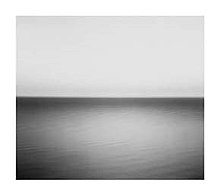
Back No Line on the Horizon Bulgarian No Line on the Horizon Catalan No Line on the Horizon Czech No Line on the Horizon Danish No Line on the Horizon German No Line on the Horizon Spanish خطی در افق نیست Persian No Line on the Horizon Finnish No Line on the Horizon French No Line on the Horizon Irish
| No Line on the Horizon | ||||
|---|---|---|---|---|
 | ||||
| Studio album by | ||||
| Released | 27 February 2009 | |||
| Recorded | May 2007 – December 2008 | |||
| Studio | ||||
| Genre | Rock | |||
| Length | 53:44 | |||
| Label | ||||
| Producer | ||||
| U2 chronology | ||||
| ||||
| Singles from No Line on the Horizon | ||||
| ||||
No Line on the Horizon is the twelfth studio album by Irish rock band U2. It was produced by Brian Eno, Daniel Lanois, and Steve Lillywhite, and was released on 27 February 2009. It was the band's first record since How to Dismantle an Atomic Bomb (2004), marking the longest gap between studio albums of their career to that point. The band originally intended to release the songs as two EPs, but later combined the material into a single record. Photographer Anton Corbijn shot a companion film, Linear, which was released alongside the album and included with several special editions.
U2 began work on a new album in 2006 with record producer Rick Rubin but shelved most of the material from those sessions. In May 2007, the group began new sessions with Eno and Lanois in Fez, Morocco, while attending the World Sacred Music Festival. Intending to write "future hymns"—songs that would be played forever—the group spent two weeks recording in a riad, with the producers involved in the songwriting process. The exotic musical influences that the group were exposed to in Fez inspired them to pursue a more experimental sound, but as the sessions unfolded, the band decided to scale back the extent of those pursuits. Having grown tired of writing in the first-person, lead singer Bono wrote his lyrics from the perspective of different characters. Recording continued at several studios in the United States, United Kingdom, and Ireland through December 2008. The group had intended to release No Line on the Horizon in November, but after composing 50 to 60 songs, they delayed the release to continue writing.
Prior to the album's release, U2 claimed that their time in Fez, as well as Eno's and Lanois' involvement, had resulted in a more experimental record than their previous two albums. The band compared the shift in style to that seen between their albums The Joshua Tree (1987) and Achtung Baby (1991). Upon release, No Line on the Horizon received generally favourable reviews, although many critics noted that it was not as experimental as previously suggested. The album debuted at number one in 30 countries but did not sell as well as anticipated; the band expressed disappointment over the relatively low sales of five million copies, compared to previous albums. Following the release of No Line on the Horizon, the band discussed plans to release a meditative follow-up album, Songs of Ascent, but the project has not come to fruition. The supporting U2 360° Tour from 2009 to 2011 broke the record for the highest-grossing concert tour in history, earning over $736 million.